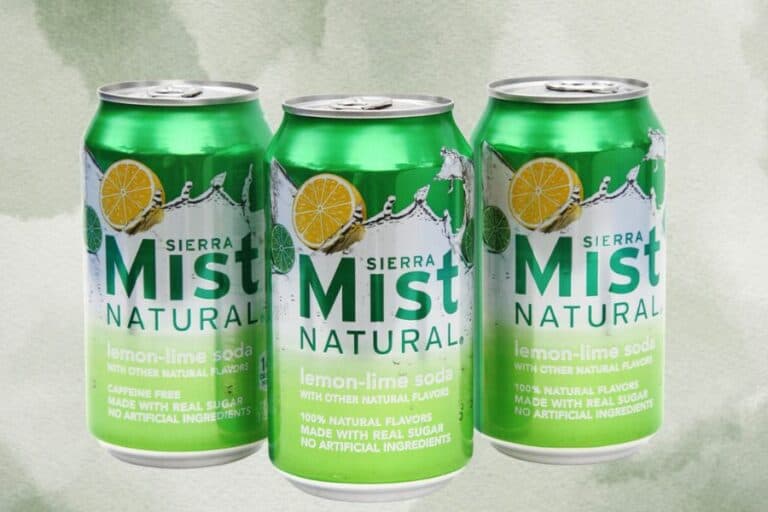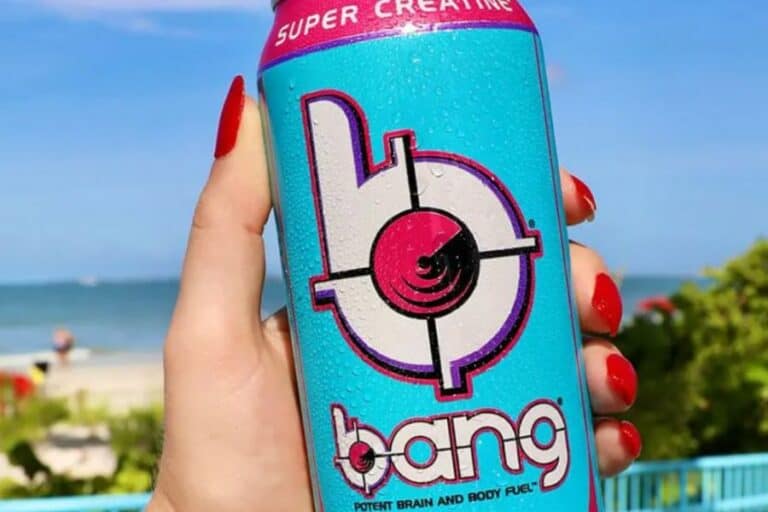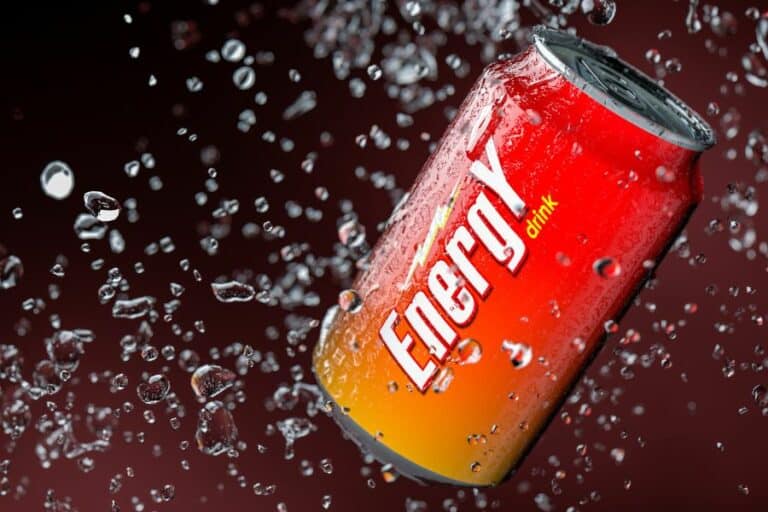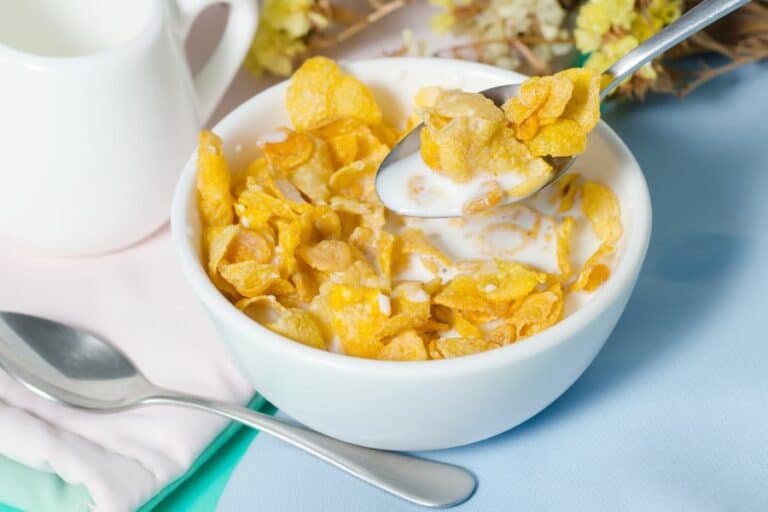Debunking The Myth: Does Ginger Ale Have Caffeine?

Does ginger ale have caffeine | History | Nutritional Facts | Ingredients | Health Benefits | Downside | Different Types | Ginger Ale vs Ginger Beer | FAQs
Ginger ale is a popular carbonated beverage made from ginger, sugar, and carbonated water. It is known for its refreshing and spicy flavor, often used as a mixer in cocktails or consumed on its own.
But does ginger ale contain caffeine?
Despite its popularity, there is a common misconception that ginger ale contains caffeine. However, the truth is that most ginger ale brands do not contain any caffeine, making it a caffeine-free beverage option.
Does ginger ale have caffeine?
Ginger ale is traditionally caffeine-free because it is made from ginger root, water, sugar, and carbonated water. None of these ingredients contribute any caffeine to ginger ale.
However, some ginger ale brands may add caffeine as an ingredient for various reasons, such as to create a flavored or energy-boosting version of ginger ale.
The total caffeine content in ginger ale would vary depending on the brand and recipe, but typically ginger ale does not contain caffeine unless it has been intentionally added.
Total Caffeine (mg) in Ginger Ale
While most ginger ale products do not contain caffeine, there are a few brands that may have caffeine due to the use of green tea as an ingredient.
Green tea naturally contains caffeine, and when used in the production of ginger ale, it can result in caffeine being present in the final product.
However, it is not common to find caffeinated ginger ale in local supermarkets, as the majority of ginger ale brands do not add caffeine to their products.
History of ginger ale
Ginger ale originated in Ireland in the 19th century and was created by Dr. Thomas Cantrell, a Belfast apothecary, as a medicinal drink to soothe stomach aches.
The first commercially produced ginger ale was made in Hamilton, Ontario, Canada in 1884 by John McLaughlin, a pharmacist who called his drink “Canada Dry Ginger Ale.”
In 1904, Ross G. Young developed a process for mass-producing ginger ale and started the American Ginger Ale Company in the U.S.
Related Articles
Ginger Ale Nutritional Facts
Ginger ale is a carbonated beverage that is often used as a mixer or consumed on its own. It is typically low in calories and fat, but can contain carbohydrates and sugars. Here is a summary of the nutritional facts for ginger ale:
| Nutrient | Amount per serving |
| Energy (kcal) | 39 |
| Protein (g) | 0 |
| Total lipid (fat) (g) | 0 |
| Carbohydrate, by difference (g) | 10.14 |
| Sugars, total including NLEA (g) | 9.86 |
| Sodium, Na (mg) | 14 |
Source: USDA [1]U.S. DEPARTMENT OF AGRICULTURE: GINGER ALE
Ingredients commonly used in ginger ale
The ingredients commonly used in ginger ale may vary depending on whether we are speaking of a traditional ginger ale recipe or the formula of a commercial version of the same. Here is a detailed explanation of each of these:
Traditional Ginger Ale
- Microbial starter culture (yeast or ginger bug)
- Sugar
- Fresh ginger root
- Other flavorings
- Water
Commercial Ginger Ale
- Carbonated water
- Sugar or high-fructose corn syrup( typically contains around 35 grams of sugar per 12 ounces.)
- Artificial or natural ginger flavor
- Lemon, lime, pineapple and honey (occasionally used)
- Preservatives such as citric acid and sodium benzoate
- Caramel coloring
- Diet or sugar-free versions of ginger ale may also contain low-calorie sweeteners such as aspartame, sucralose, or stevia.
Examples of specific ingredients in commercial ginger ales
- Canada Dry Ginger Ale: Carbonated water, high fructose corn syrup, ginger extract, natural flavors, citric acid, sodium benzoate (preservative), caramel color.
- Ginger Beer: Carbonated water, cane sugar, ginger root, natural flavors, citric acid (acid), yeast, preservatives (202, 211), antioxidant (ascorbic acid).
Health Benefits Of Ginger Ale
Ginger ale is a comparatively healthy drink compared to many other commercially available beverages. Here is a list of the top health benefits of ginger ale:
1. Anti-inflammatory properties
Ginger, which is the active ingredient in ginger ale, has been shown to have anti-inflammatory properties, [2]National Library of Medicine: Anti-Oxidative and Anti-Inflammatory Effects of Ginger in Health and Physical Activity: Review of Current Evidence which can help reduce inflammation in the body, including joints, and may provide relief in conditions such as arthritis.
2. Antioxidant properties
Ginger also has antioxidant properties, which can help fight against oxidative stress and reduce the risk of chronic diseases, such as ovarian cancer [3]National Library of Medicine: The Amazing and Mighty Ginger.
3. Caffeine-free
Unlike regular sodas, ginger ale is caffeine-free, making it a better choice for those who want to avoid the negative effects of caffeine, such as increased heart rate and elevated blood pressure.
4. Blood sugar control
Some animal-based experiments have shown that ginger may help control blood sugar levels [4]National Library of Medicine: The Effects of Ginger on Fasting Blood Sugar, Hemoglobin A1c, Apolipoprotein B, Apolipoprotein A-I and Malondialdehyde in Type 2 Diabetic Patients. By implication, moderate consumption of ginger ale(without excessive added sugars) may be a beneficial beverage for individuals with diabetes.
5. Nutrient provision
Ginger ale contains sodium, calcium, magnesium, and iron, [5]University of Rochester Medical Center Rochester: Nutrition Facts which are essential minerals for the body. These minerals can help support various bodily functions, such as nerve function, muscle function, and bone health.
Related Articles
Downside of ginger ale
It’s important to consume ginger ale in moderation and consider the potential downsides, especially if you have any pre-existing health conditions or concerns. Here are some downsides of ginger ale:
1. Digestive distress
Ginger ale may cause digestive distress in some individuals, including bloating, burping, and increased gassiness due to its carbonation.
2. Impact on Blood Clotting
Ginger ale has been studied to have a blood-thinning effect, which may interact with medications or increase the risk of bleeding in certain individuals.
3. High Sugar Content
Ginger ale can contain high amounts of sugar, which may contribute to non-communicable disorders such as type 2 diabetes, obesity, and hormonal imbalances. It can also lead to dental issues such as cavities and decay.
4. Citric Acid and Dental Health
Ginger ale contains citric acid, which can have a negative impact on tooth enamel and overall dental health.
5. Acidity
Ginger ale is generally considered to be acidic in nature, with a pH value between 3.0 and 4.5 in commercially sold variants, which may affect digestive health in some individuals.
Different types of ginger ale available in the market
There are various types of ginger ale available in the market, including:
1. Regular Ginger Ale
Regular ginger ale refers to the classic, standard version of ginger ale that is commonly found in stores. It typically contains carbonated water, sugar or high-fructose corn syrup, and natural or artificial ginger flavorings. It has a balanced sweet and ginger flavor profile and is a popular choice for those who enjoy a milder ginger taste.
2. Dry Ginger Ale
Dry ginger ale is a less sweet variant of ginger ale that has a drier taste profile. It contains less sugar or sweeteners compared to regular ginger ale, resulting in a crisper and less sweet flavor. Dry ginger ale is often used as a mixer in cocktails due to its less sweet taste, allowing other flavors to shine through.
3. Diet or Sugar-Free Ginger Ale
These variants of ginger ale are specifically formulated for those who prefer lower-calorie or sugar-free options. They are often sweetened with artificial sweeteners such as aspartame, sucralose, or stevia.
4. Flavored Ginger Ale
Some ginger ale brands offer flavored options, such as lemon ginger ale, lime ginger ale, or pineapple ginger ale, which may contain additional natural or artificial flavors to enhance the taste.
5. Craft or Artisanal Ginger Ale
These are specialty ginger ale brands that are typically handcrafted in small batches using high-quality ingredients and unique flavor profiles. They may feature artisanal brewing techniques, natural sweeteners, and a higher ginger content for a more distinct and premium taste.
6. Non-Alcoholic Ginger Beer
While technically not a ginger ale, ginger beer is a similar carbonated beverage made from ginger, sugar, water, and other flavorings. It is typically stronger in flavor and spicier than ginger ale and may have a higher ginger content.
The Differences Between Ginger Ale and Ginger Beer
Ginger ale and ginger beer are similar in that they are both carbonated beverages with a ginger flavor, but they have key differences.
The main differences between ginger ale and ginger beer are the brewing process and flavor profile.
Ginger beer is traditionally brewed and fermented, resulting in a stronger ginger flavor and often contains alcohol. Ginger beer may have a cloudy appearance. Ginger beer is often used as a mixer in cocktails
Ginger ale, on the other hand, is typically non-alcoholic. It is a carbonated drink that has a milder ginger taste and is usually clear. It is commonly consumed on its own as a soft drink.
Conclusion
Despite the common misconception, ginger ale is traditionally caffeine-free. While some ginger ale brands may add caffeine as an ingredient for various reasons, it is not common to find caffeinated ginger ale in local supermarkets.
Ginger ale comes with its own set of health benefits and risks. Therefore, as with any beverage, reading the nutrient labels on the package and consuming in moderation is key to safe consumption.
FAQs
Does Canadian Dry Ginger Ale Have Caffeine?
Canadian dry ginger ale typically does not contain caffeine, as it is often marketed as a non-alcoholic and caffeine-free beverage.
Does Schweppes ginger ale have caffeine in it?
Schweppes ginger ale does not typically contain caffeine, as it is commonly available as a caffeine-free carbonated soft drink.
References
| ↑1 | U.S. DEPARTMENT OF AGRICULTURE: GINGER ALE |
|---|---|
| ↑2 | National Library of Medicine: Anti-Oxidative and Anti-Inflammatory Effects of Ginger in Health and Physical Activity: Review of Current Evidence |
| ↑3 | National Library of Medicine: The Amazing and Mighty Ginger |
| ↑4 | National Library of Medicine: The Effects of Ginger on Fasting Blood Sugar, Hemoglobin A1c, Apolipoprotein B, Apolipoprotein A-I and Malondialdehyde in Type 2 Diabetic Patients |
| ↑5 | University of Rochester Medical Center Rochester: Nutrition Facts |







